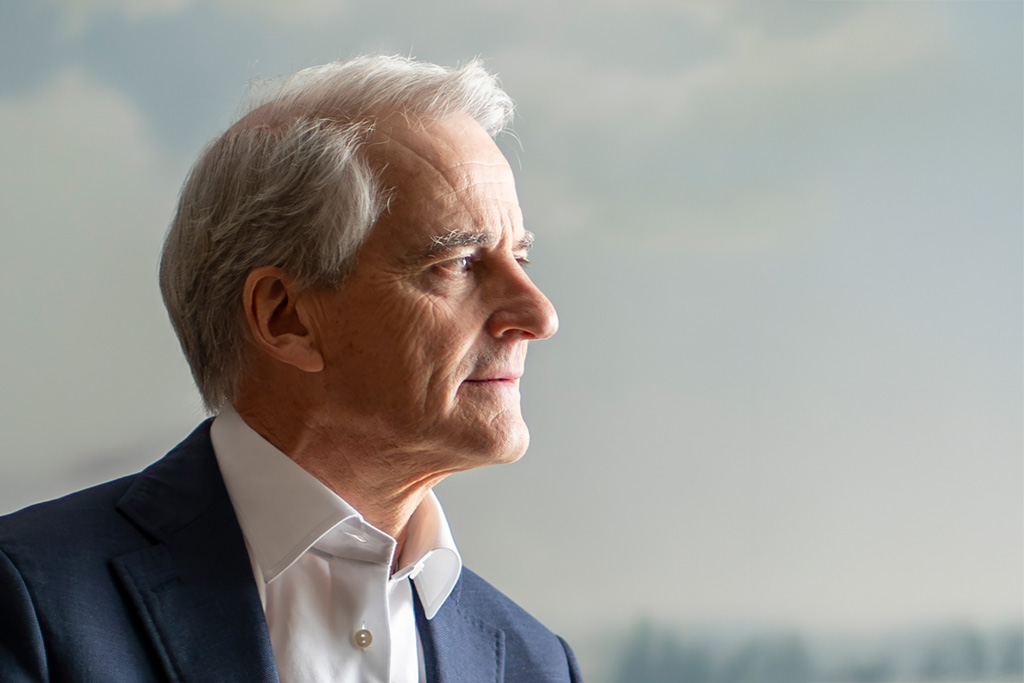Urges vigilance
War and global unrest are impacting the petroleum industry. Prime minister Jonas Gahr Støre is focused on Norway´s ability to ensure a secure and stable energy supply, while simultaneously protecting those working in the country's largest industry.

- Security
- Risk management
"We are living in the most serious security policy situation since World War II," says prime minister Jonas Gahr Støre.
“Russia's war of aggression against Ukraine continues at full force. Israel has resumed acts of war in Gaza. At the same time, we are seeing turbulence globally, including in the economy, as a result of the new US administration," he points out.
"Cooperation with our European neighbours and allies is particularly important in times of turbulence," the prime minister emphasises, and states that international developments are having a direct impact on the Norwegian petroleum industry. And that the threat landscape is serious.

Vigilance is not distrust
"We have an escalated situation on the Norwegian continental shelf as well. The intelligence, surveillance and security services' threat assessments show that there is a need for increased vigilance, and that there is also a generally increased likelihood of sabotage against us in Norway.
At the same time, it is important to emphasise that there are no indications of direct threats targeted at Norwegian oil and gas installations, neither onshore nor on the continental shelf. From a government point of view, national security takes top priority,” the prime minister states.
His advice to those working on platforms and onshore facilities is to be vigilant and observant. Gahr Støres encourages everyone to report anything unusual - and emphasizes that vigilance does not equal distrust.
“This is about making sure that surroundings and systems are as they should be. It is about reporting faults in systems or abnormal incidents. This will result in increased security for everyone.”
Main supplier
Gahr Støre emphasises the significance of the Norwegian petroleum industry regarding stable energy deliveries to Europe.
"The Norwegian continental shelf plays an important role in Europe's energy security as the most important supplier of gas to Europe since Russian gas was sidelined. We will continue to do so in the future.
The government will continue to facilitate a high level of activity on the Norwegian continental shelf," he says.
“At the same time, safety for those working in the industry is paramount, and this must be reflected in the working environment.
In Norway, we have a good starting point. Over time, the stakeholders, labour organisations and authorities in the petroleum industry have worked on systematic prevention and improvement. This has ensured us a high level of safety on the Norwegian continental shelf.
However, we also know that good, preventive work must continue to be prioritised every single day," the prime minister points out.
The Norwegian continental shelf plays an important role in Europe's energy security as the most important supplier of gas to Europe since Russian gas was sidelined. We will continue to do so in the future.

Opportunities
Speaking on the balance between stable energy deliveries from the Norwegian continental shelf and the government's ambitions for the green transition, Gahr Støre emphasises the need for Norway to supply low-emission gas deliveries whilst investing simultaneously in renewable energy. He also sees the development of offshore wind as an opportunity for the supplier industry.
"The Government is keenly focused on stable energy supplies and energy security from the Norwegian continental shelf in the years to come. We also know that the development of offshore wind in the North Sea Basin will provide further opportunities for the supplier industry, which increasingly supplies to both the oil and gas and the renewable industries," he says.
Applies to the entire shelf
The prime minister highlights the importance of stringent safety requirements and close dialogue between the authorities and the companies.
"This applies to the entire shelf, including the northernmost sector and those areas bordering Russia.
Even though we are particularly focused on the High North in the times we live in, stringent safety requirements apply to all petroleum activities regardless of location," he points out.
"In recent years, the Government has intensified its efforts on both safety and security work on the shelf.
The companies are responsible for the safety of their own installations and facilities, and for implementing risk-reducing measures. Cooperation at government level, public-private cooperation and civil-military cooperation have all been reinforced in recent times.”
